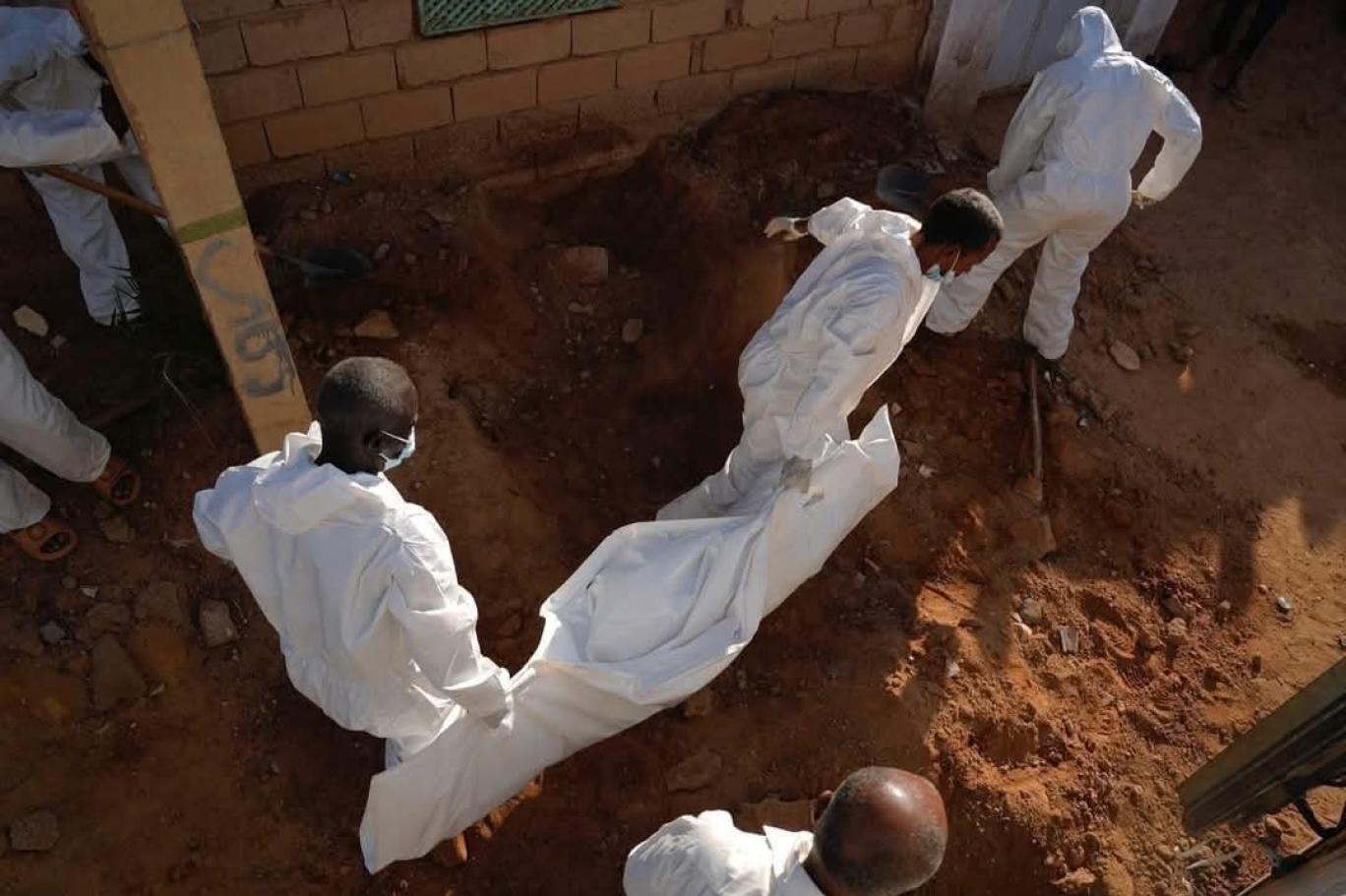Fears are mounting among residents trapped inside Khartoum and those arriving from displacement and refugee areas of an impending severe environmental disaster, especially after corpses have begun decomposing in the streets, with many left unburied or not taken to morgues, posing major threats to the environment and public health.
Following the liberation of Khartoum from the control of the Rapid Support Forces, numerous individual and mass graves have been found, some known and used as temporary burial sites inside homes or out in public streets and squares, as residents were forced to bury their deceased relatives due to the inability to reach cemeteries.
Regular Campaigns
In response, the Forensic Medicine Authority of the Ministry of Health in Khartoum State, in cooperation with the Civil Defense Forces and the Sudanese Red Crescent Society, has begun collecting decomposed corpses, disinfecting roads, vital facilities, and homes in East Nile locality as part of efforts to remove war remnants.
The Forensic Medicine Authority confirmed its full readiness to continue its mission and to respond to any reports from citizens regarding the presence of bodies in the area.
Health Risks
In this context, environmental activist Hassan Jibril told the (Mashaweer) platform about the urgent need to act swiftly to mitigate environmental and health impacts by transferring and burying the corpses according to legal and religious procedures while preserving all related data and information, especially as some cases are tied to the dispersal of the sit-in at the army headquarters and other major criminal cases.
He added: “It is crucial to carry out thorough disinfection and cleaning using disinfectants and pesticides, as a matter of urgent hygiene.”
Jibril appealed to the Ministry of Health and those concerned with public health to understand the catastrophic situation, warning that it could affect thousands of citizens, particularly since the rainy season (autumn) is less than a month away, and rainwater could carry remnants of corpses and various resulting microbes, leading to widespread epidemics and diseases.
He continued: “The gravity of the situation now requires urgent intervention by the international community to preserve citizens’ lives and the environment.”
Shocking Statistics
Statistics indicate that over 1,900 temporary graves have been documented inside homes, streets, public squares, and fields across Khartoum State.
Campaigns following the liberation of Khartoum Bahri city and East Nile locality found approximately 185 unidentified bodies of civilians and military personnel, some dating back to the early days of the war.
One of the most horrifying and tragic incidents was the discovery of the bodies of several women inside a (septic tank) in a house in the Shambat neighborhood of Khartoum Bahri, highlighting the extent of atrocities and the levels of oppression and torture these women endured before being killed and disposed of.
Environmental Catastrophe
Meanwhile, forensic medicine specialist Sami Omar warned of the worsening situation, potentially turning into a real disaster amid the ongoing war that left morgues without electricity or staff, resulting in body decomposition and unbearable odors.
Even more concerning, Omar said, is the spread of various diseases and epidemics. He expects serious health and environmental repercussions, noting that several morgues in Khartoum State have become inaccessible, and even if they were reached, it might be too late to address the situation after the bodies inside had severely decomposed into a major crisis.
The forensic expert expressed fears that corpses in these morgues might have been eaten and torn apart by stray dogs and cats after rats previously attacked them, making their condition no different from those lying on the streets.
